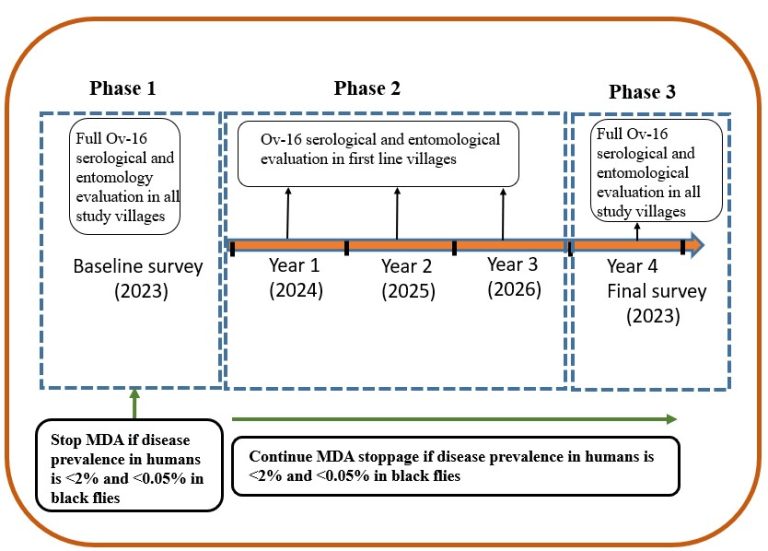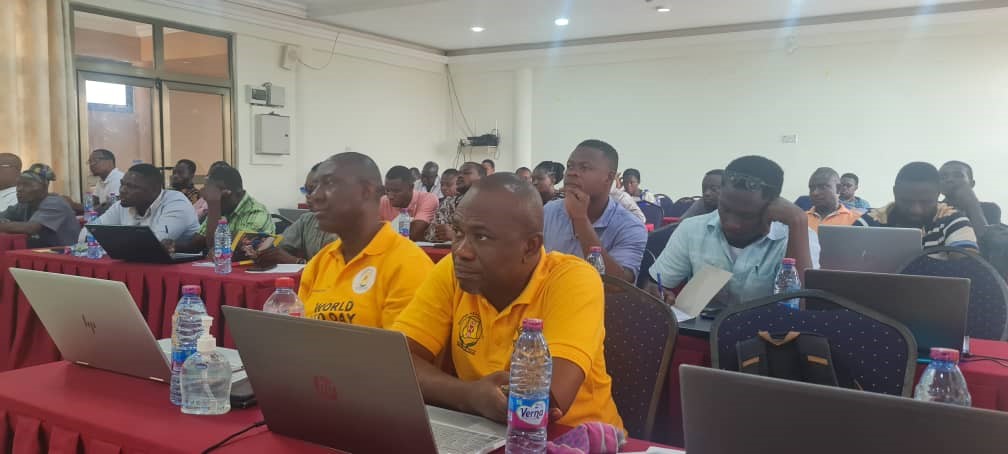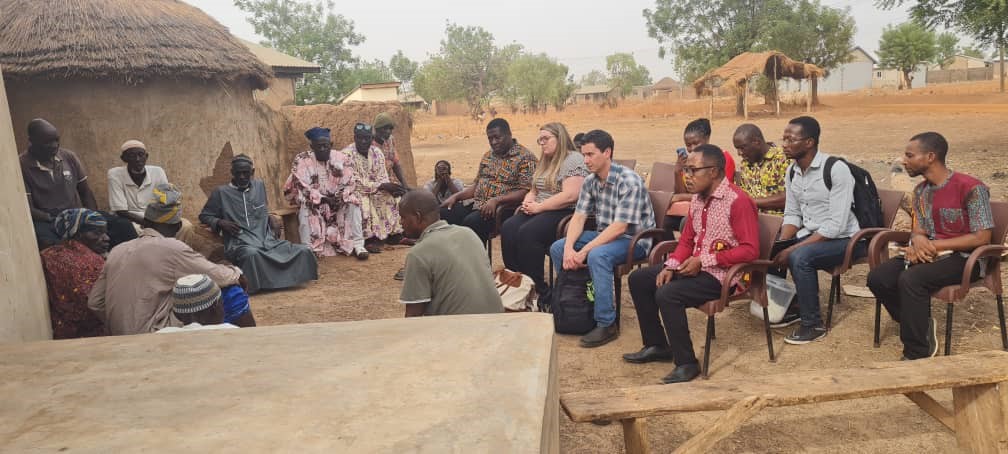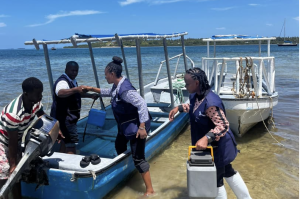AFENET furthers support for onchocerciasis mass drug administration in Ghana
-
by
AFENET
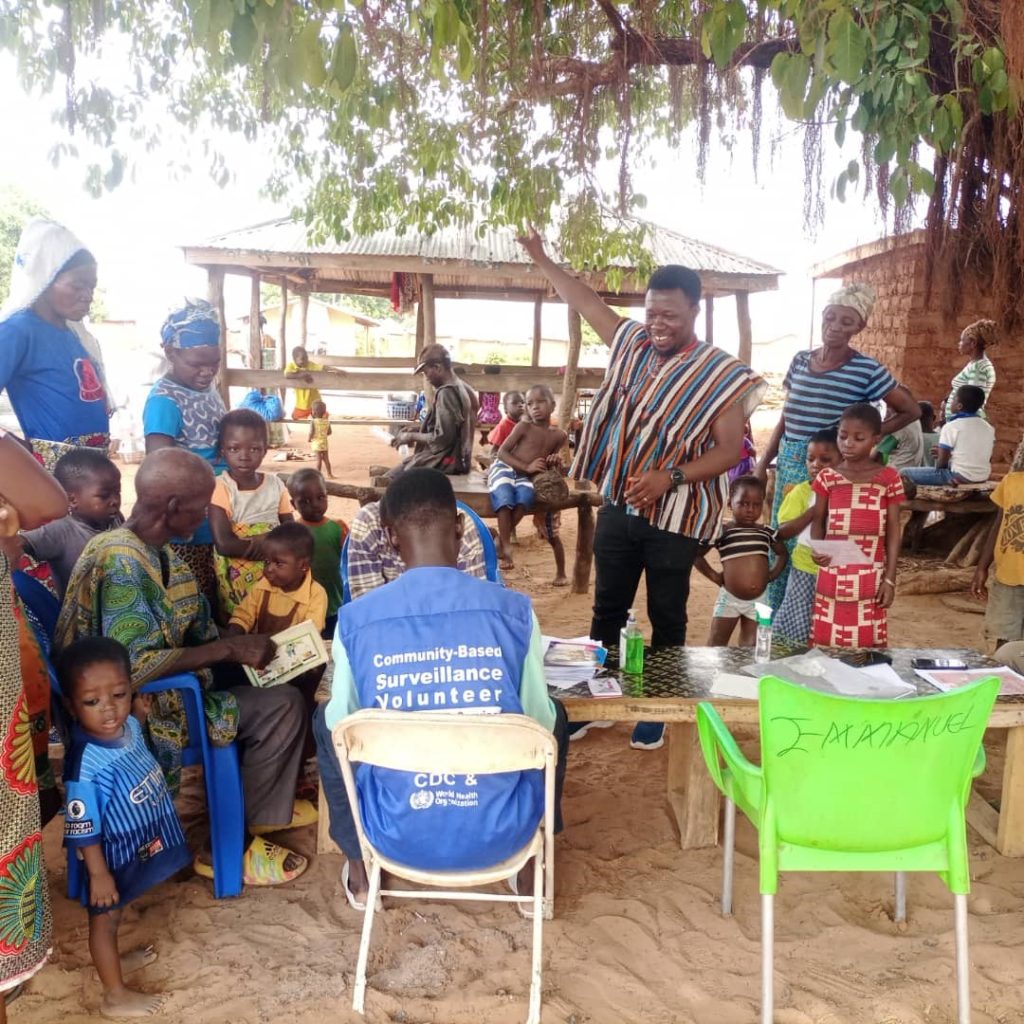
In continuing efforts to combat neglected tropical diseases (NTDs) in sub-Saharan Africa, the African Field Epidemiology Network (AFENET) has initiated Phase 2 of the Mass Drug Administration (MDA) study for onchocerciasis in Ghana. This pivotal step follows the successful outcomes of Phase 1 and underlines AFENET’s commitment to evaluating strategies for controlling and eliminating NTDs in collaboration with global partners.
AFENET’s was awarded a grant by the US Centers for Disease Control and Prevention (CDC) to support NTD control and elimination efforts across sub-Saharan Africa. Central to AFENET’s mission is the operational research focused on evaluating the threshold for discontinuing Ivermectin Mass Drug Administration in communities afflicted by onchocerciasis. This multi-country study, spanning Ghana, Tanzania, and Benin, aims to assess the safety and efficacy of adjusting the current threshold from a sero-prevalence of 0.1% among children aged 5-9 years to less than or equal to 2 percent.
Phase 1 of the study, conducted in the White Volta Kulpawn onchocerciasis transmission zone in Northern Ghana, delivered encouraging results. With prevalence rates of onchocerciasis in humans at 1.3% and among black flies at 0.013%, as confirmed by laboratory analysis, Phase 2 has been greenlit to further explore the feasibility of adjusted MDA thresholds.
Data collection for Phase 2 commenced with 875 eligible children across 10 study villages, spanning from 20 – 27 March 2024. Simultaneously, the collection of black flies began in February 2024 and is scheduled for completion in July 2024. The specimens gathered will undergo rigorous laboratory scrutiny, with results expected to be unveiled by August 2024.
This collaborative effort involves partnerships with the National Neglected Tropical Disease Program in Ghana, the US CDC, and the Ghana National Reference Laboratory. The study’s focus on the White Volta Kulpawn transmission zone, encompassing 10 districts endemic to onchocerciasis, underscores its critical importance in evaluating adjusted MDA thresholds.
Dr. John Doe, the lead researcher for the study, articulated his optimism about Phase 2’s potential impact, emphasizing its role in informing decision-making surrounding onchocerciasis control and elimination strategies.
The successful execution of Phase 2 is poised to furnish invaluable insights into optimizing onchocerciasis control efforts, thereby advancing the global agenda toward eradicating this debilitating disease. As AFENET and its collaborators continue to pioneer innovative research initiatives, the prospects for significant strides in NTD control and elimination across Africa remain promising.
